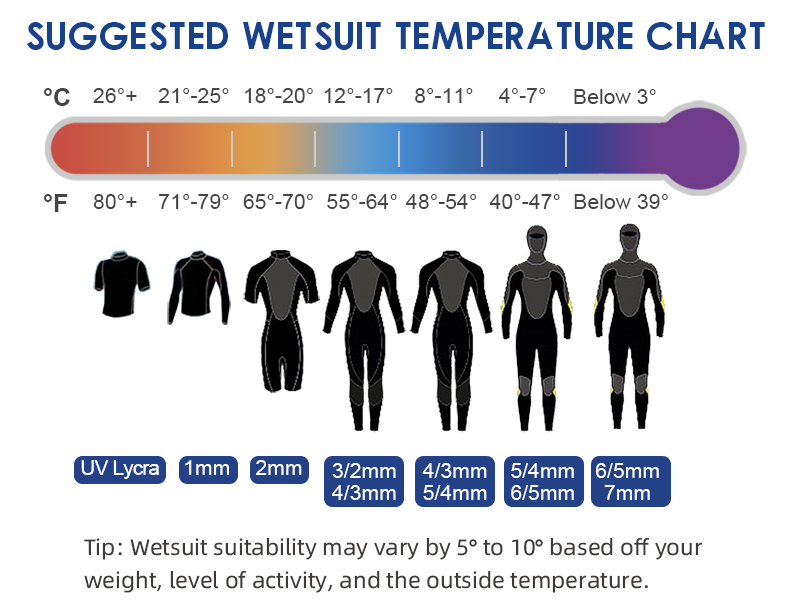Diving is an exciting water sport, but choosing the rioht diing suit is essential to ensure diving safety and comfort. A diving suit not ony provides warmth, bulso protects the body from jellfish, corals and other marine life. This aricle wilgive you a detailed introduction to the types, materials,thicknes of divingiuits, and how to maintain diving suits, to help you choose the diving equipment that best suits you.
Types of diving suits
Diving suits are mainly divided into the following categories:
Wetsuit: Wetsuit is the most common choice for diving enthusiasts. t uses the heat generated by the body to keep warm by retaining a thin layer of
water between the diving suit and the skin.
Drysuit: Drysuit is completely sealed and can keep the body completely dry. t is suitable for diving in cold waters or for long periods oftime.
Semi-drysuit : Semi-drysuit is between wet and dry suits, with better heat preservation and comfort.
Diving suit material
Diving suits are mainly made of neoprene and synthetic materials, Neoprene has good heat preseration and elasticity, and is the most commonlyused materialfor making diving suits, Synthetic diving suits are lighter and more durable, suitable for tropical areas or long-term diving.
Choice of diving suit thickness

The thickness of a diing suit affects its thermal insulation performance, Generaly speaking,the lower the water temperature,the thicker the diving suit needs tobe. Common diving suit thicknesses include 3mm, 5mm, 7mm, etc.
How to choose a diving suit that suits you
Water temperature at the diving site: Choose the appropriate thickness of the diving suit according to the water temperature at the diving site
Diving time: Long-term diving requires better thermal insulation, so you can choose a thicker diving suit.
Personal physique: People with a cold physique can choose a thicker diving suit.
Type of diving activity: Diferent diving activities have diferent requirements for diing suit, For example,the diving suit for free diing wil be ighter andthinner.
Wetsuit maintenance
Rinse: After each dive, rinse the wetsuit with clean water to remove salt and other impurities.
Dry: Hang the wetsuit in a cool and ventilated place to dry, away from direct sunlight
Store: Store the wetsuit flat or hung up, avoid folding.
Regular inspection: Regularly check the wetsuit for damage or wear and repair it in time.
Choosing the right diving suit is an important part of ensuring dving safety and comfor.l hope this article can provide you with some purchase suggestions.

